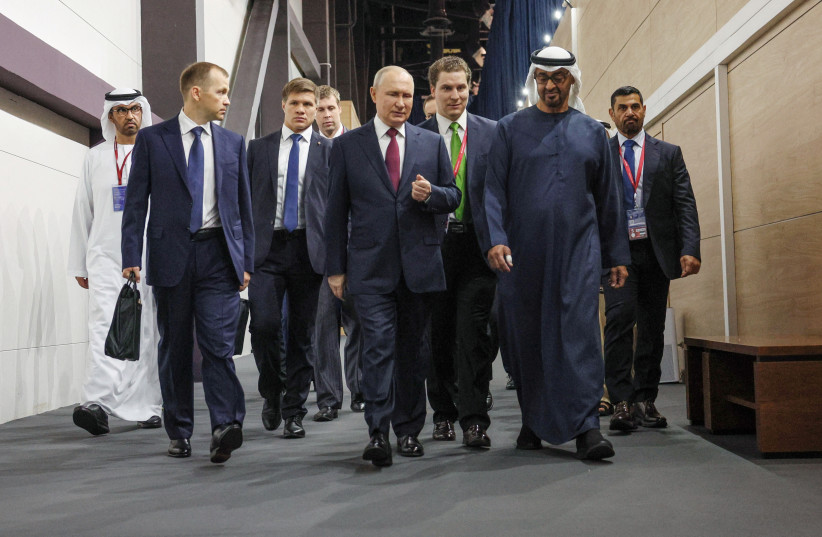Russia’s Vladimir Putin spoke with the President of Iran and the President of the UAE in the wake of the Wagner rebellion last weekend. The Russian leader’s decision to phone leaders in the Middle East illustrates how important the region remains, not just for Russia, but for the world in general.
This is in contrast to some policy analysis that suggests the Middle East is no longer of interest in the West and that the US and others are shifting away from the region after decades of involvement. While it may be true that some think tanks in the US or commentators no longer see the Middle East as a major area to focus on, reality illustrates why it matters.
Why did Putin phone the Iranians after the mutiny among Wagner’s forces? Russia acquires drone technology from Iran and has been using Iranian drones to target Ukraine. Russia has also been working Iran on other issues, such as sometimes running interference for Tehran in talks with the West on nuclear issues.
It’s worthwhile noting that more than a decade ago during the Obama administration years there was a clear view of how Russia and Iran were connected. Back in those years, there was a desire to reduce US-Russia tensions to use Moscow as some sort of bridge to Iran. There were also theorists in Washington who believed Russia and the US could work together to balance China.
At the same time, others advocated using Turkey to balance Iran and Russia. Needless to say, none of this worked. The fantasy of cooperation with Russia led to the first 2014 invasion of Ukraine by Russia, and likely emboldened Russia to intervene in Syria.

A recent discussion between Putin and Raisi
For Moscow, Iran is of great importance. Putin spoke to Iranian President Ibrahim Raisi after the rebellion and discussed issues relating to the Caucasus and also the Astana process regarding Syria. “While congratulating the arrival of Eid al-Adha, the President of Russia, Vladimir Putin, presented a report on the recent armed rebellion in this country and stated: Russia acted with strength against this rebellion,” Iran’s pro-regime media said.
The leaders discussed a North-South trade corridor and also discussed bilateral trade and Syria. Putin also spoke with UAE President Sheikh Mohammed bin Zayed, the Kremlin reported on Monday. “Having received exhaustive information, the Emirati leader declared his full support for the actions of the Russian leadership,” the Kremlin said in a statement. Trade and other ties were on the agenda in the talks.
The two calls represent how Moscow continues to view the Middle East as a key player in its policy goals. In addition, Ukraine’s critique of Israel over the last week for not providing more defense technology support for Kyiv also illustrates how much the region matters.
Ukraine has not been critiquing Brazil, South Africa, or many other states in the world regarding the need for air defenses and support. This is because while many countries in the world may have large economies, many of them do not make state-of-the-art radars and air defenses or other technologies that will be of use in the conflict.
The Middle East’s relevance is linked to trade and also defense issues. This is because the Middle East has been a testing ground for new defense technology since the early days of the Cold War. Air defenses, tanks, missiles, drones and other technology have all been combat proven in the region. Iran developed drones in the region to target Saudi Arabia, Israel and others; and then sent them to Russia.
Iron Dome was developed to stop Iranian-backed rocket fire from Lebanon and Gaza. Ukraine now wants Iron Dome. European countries are rushing to acquire new defense technology and looking to the Middle East to see what works. Turkey developed cheap armed drones and has used Syria and Iraq as an area for target practice to increase sales. All of this is evidence that while some policymakers want to be done with the Middle East, the region is still like the scene in Godfather III, it continues to drag people back in.
